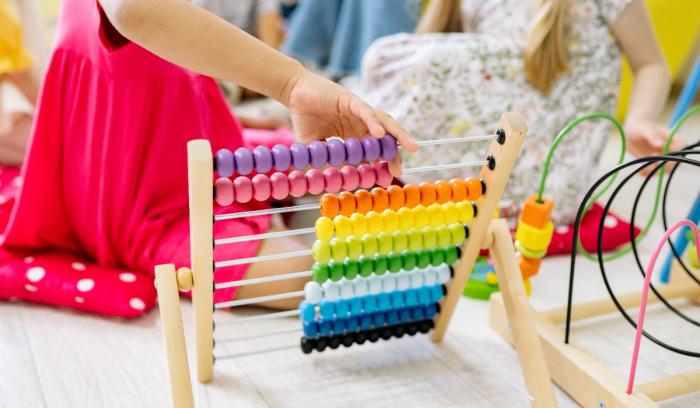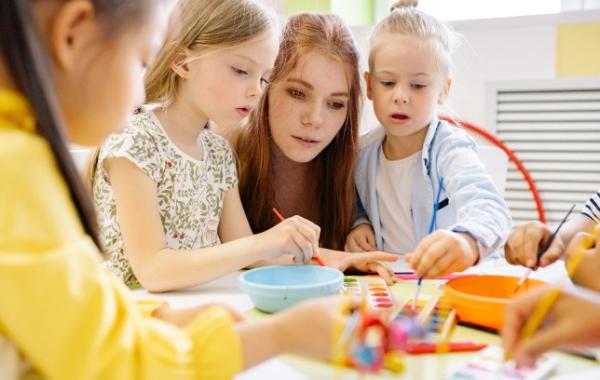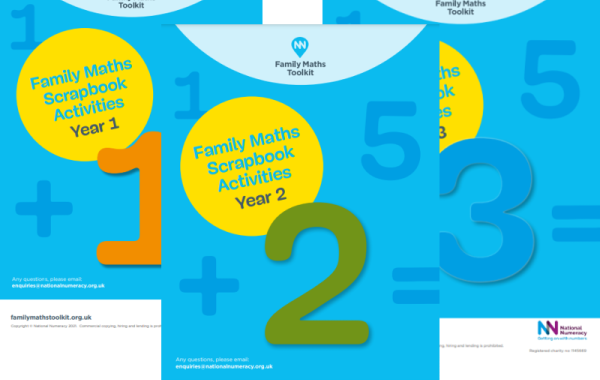How to find maths in everyday life
Pointing out the numbers and maths around us in the real world helps children to see the value of numbers in their everyday lives.
It shows them that maths is important, and not just something they do at school.

This can make a big difference to their learning. It can also make supporting children more fun, even if you don’t feel good about maths yourself.
Lots of parents and carers don’t feel confident talking about school maths. These ideas are designed to help identify and talk about the numbers around us in a positive way.
Hobbies
Choose a hobby you might do with children, can you use it to find examples of maths in the real world? Here are some ideas:
- Playing music: how long would a playlist need to be to end once you've tidied your room?
- Playing games: try keeping scores, counting squares if you rolled the dice, and money in Monopoly.
- Arts and crafts: touch on ratios while you mix paint colours, or explore shapes and sizes for your creations!
- Gardening: have a go at measuring your plants, or work out how deep you need to sew new seeds.

In the House
Choose an activity you might do at home with your children. Have a go at using it to point out maths in the real world. Here are some ideas:
- Watching TV: try to use your remote control to get to the right channel, or count the time until your favourite programme starts.
- Baking: count your ingredients, scale up recipes or try dividing your food into fractions!
- Helping with household chores: try setting the table for your family, or count the shapes you see around the house.
- Reading books and magazines: work out how many pages you've read, or see if you can spot any price labels.

Family Maths Toolkit
Sign up to get access to 230+ ideas and free activities designed to help your family enjoy maths together!

In the world
Choose something you might do while you're out and about with children. Have a go at finding examples of how you can use the activities to spot maths at play. Here are some ideas:
- Going for a walk: you could talk about distances, numbers on road signs and counting things you see where you are.
- Doing the shopping: calculate special offers, look at use by dates or even the numbers on labels.
- Using public transport: use numbers in the timetable to find your best journey.
- Going to a café: try counting out the correct change, compare prices, or fractions with cake!

Sports
Choose a sport that your children like to play. Can you find examples of how you might use maths? Here are some ideas:
- Football: you could talk about time, angles for free kicks, and shapes on the pitch.
- Swimming: try to work out how long the pool is, time yourselves, or even shapes you can make it the pool.
- Athletics: work out how many laps to cover a distance, or even size and weight of equipment.
- Netball: you could talk about scoring percentages, which team is winning or shapes on the court.

Maths in future careers
As well as pointing out the maths around you, talking about the maths children might need in the future can be helpful, especially for older children.
Choose a career that children might be interested in, and find ways you can point out the maths needed for their dream job.
- Public Service jobs (e.g. Police and Nurses)
- Customer Service jobs (e.g. Hairdressing, Retail, Hospitality)
- Science, Maths & Tech (e.g. Scientists, Vets, Engineers)
- Creative jobs (e.g. Actors, Musicians, Designers)
- Vocational jobs (e.g. Builders, Carpenters, Mechanics)
If there isn’t a suitable option, choose the one that’s closest and use it to help inspire your own ideas.






